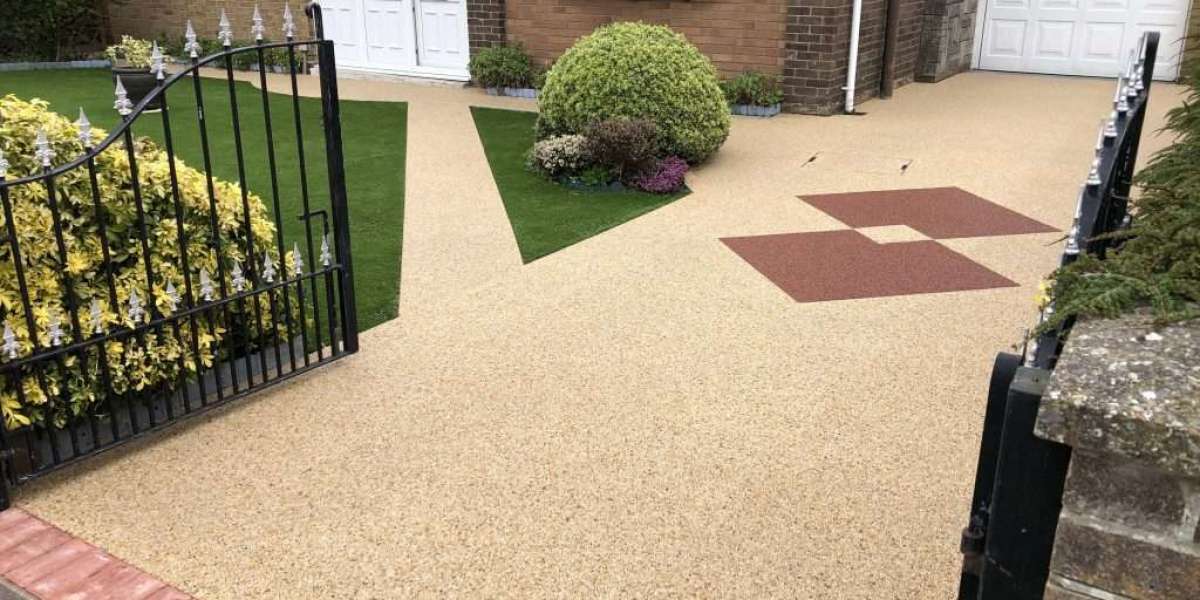When upgrading your driveway, the choices can feel overwhelming. Among the most popular options are resin driveways and block paving. Both offer unique benefits, but which is the right fit for your home? Whether you prioritize durability, aesthetics, or cost, it’s essential to weigh the pros and cons. If you're looking for a reliable solution, resin driveways in Portsmouth are a fantastic choice, offering a modern look and robust performance.
In this guide, we’ll break down the key differences between resin driveways and block paving to help you make an informed decision.
What Is a Resin Driveway?
Resin driveways are made by mixing resin with aggregates like gravel, sand, or stone to create a durable, smooth, and customizable surface. The mixture is applied over a prepared base, resulting in a seamless and visually appealing finish.
What Is Block Paving?
Block paving involves laying individual bricks or blocks in specific patterns over a sub-base. These blocks are often made from concrete, clay, or natural stone and come in various shapes, sizes, and colors.
Durability: Which Option Lasts Longer?
Resin Driveways
Resin driveways are highly durable and can handle heavy traffic without cracking. They are resistant to weather extremes, UV rays, and general wear and tear, making them an excellent long-term investment.
Block Paving
Block paving is also durable but may shift or sink over time if not installed correctly. Regular maintenance, like re-leveling and replacing damaged blocks, is required to maintain its longevity.
Aesthetics: Enhancing Your Home's Curb Appeal
Resin Driveways
Resin driveways offer a sleek, modern appearance. With an extensive range of colors and finishes available, they can be customized to suit any property style. The seamless look is ideal for contemporary homes.
Block Paving
Block paving is known for its classic charm and versatility. It allows for intricate patterns and designs, adding a touch of personality to your driveway. This option is particularly suited to traditional and period homes.
Installation: Time and Complexity
Resin Driveways
Resin driveways are relatively quick to install. Most projects can be completed in 1-2 days, depending on the area size and base condition.
Block Paving
Block paving requires more time and labor due to the meticulous process of laying individual blocks. Depending on the complexity of the design, it may take several days to complete.
Cost: Upfront and Long-Term Expenses
Resin Driveways
The upfront cost of a resin driveway is often higher than block paving. However, its low maintenance and longevity make it a cost-effective choice in the long run.
Block Paving
Block paving is generally cheaper initially, but the ongoing maintenance and potential need for repairs can add to the overall expense over time.
Maintenance: Keeping It Looking New
Resin Driveways
Resin surfaces are low-maintenance. Regular sweeping and occasional washing keep them clean. They’re resistant to weeds and moss, reducing the time spent on upkeep.
Block Paving
Block paving requires more maintenance to prevent weeds and moss from growing between the blocks. You may also need to reapply sand to the joints periodically.
Weather Resistance: How They Perform Year-Round
Resin Driveways
Resin driveways are highly weather-resistant. Their permeable surface allows water to drain away, preventing puddles and flooding during heavy rains.
Block Paving
While block paving can also be made permeable, poor installation or damaged joints may cause water pooling. In freezing temperatures, water can seep into the joints and expand, leading to cracks.
Eco-Friendliness: Which Option Is Greener?
Resin Driveways
Resin-bound driveways are eco-friendly due to their permeable nature, which helps with sustainable water drainage. Some resins are also made from recycled materials.
Block Paving
Block paving can also be eco-friendly if permeable blocks are used. However, standard blocks may contribute to water runoff issues.
Versatility: Meeting Different Needs
Resin Driveways
Resin driveways are versatile, suitable for driveways, pathways, and patios. They can seamlessly connect different outdoor spaces for a unified look.
Block Paving
Block paving excels in creating unique designs and patterns. It’s perfect for areas requiring detailed customization, such as decorative patios or garden paths.
Resin Driveways: Key Benefits
- Seamless, modern appearance
- Quick installation and low maintenance
- Durable and resistant to UV and weather damage
- Permeable surface prevents puddles and flooding
Block Paving: Key Benefits
- Timeless charm with customizable designs
- Affordable upfront cost
- Easy to repair by replacing individual blocks
- Suitable for traditional and rustic aesthetics
Which One Should You Choose?
The best choice between resin driveways and block paving depends on your needs and preferences:
- Choose Resin Driveways if you value a modern, seamless look, low maintenance, and durability.
- Choose Block Paving if you prefer classic designs, affordability, and the ability to repair specific areas easily.
Conclusion
Both resin driveways and block paving have their merits. While resin driveways offer sleek modernity and low maintenance, block paving delivers timeless charm and design flexibility. Assess your budget, design preferences, and long-term expectations to decide which option suits your home best.








